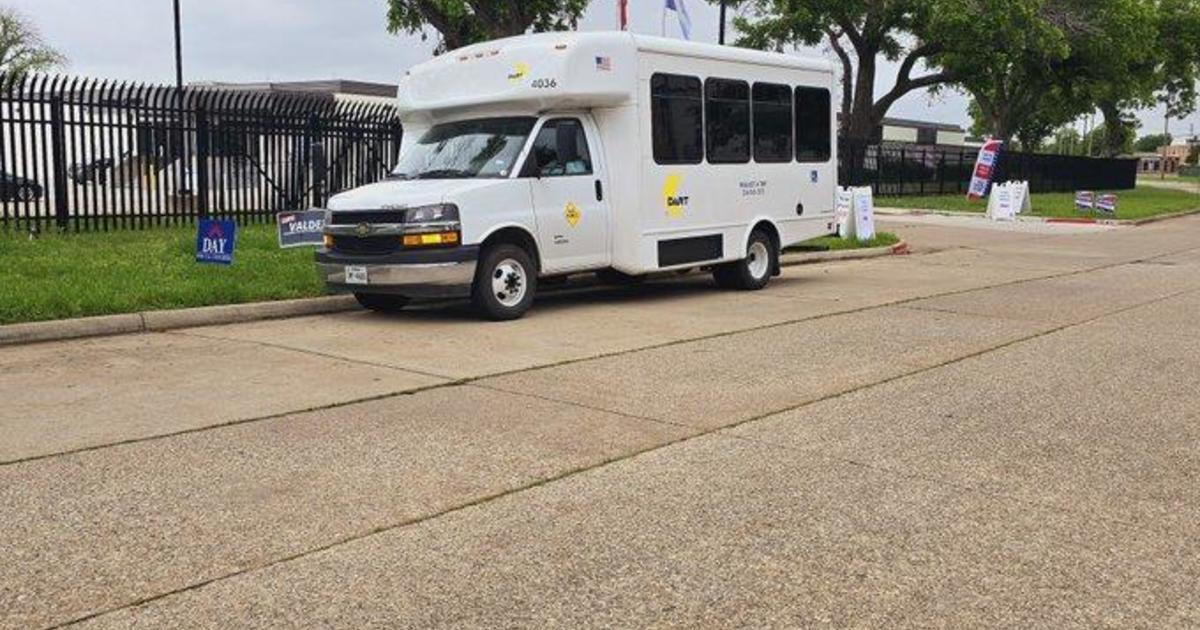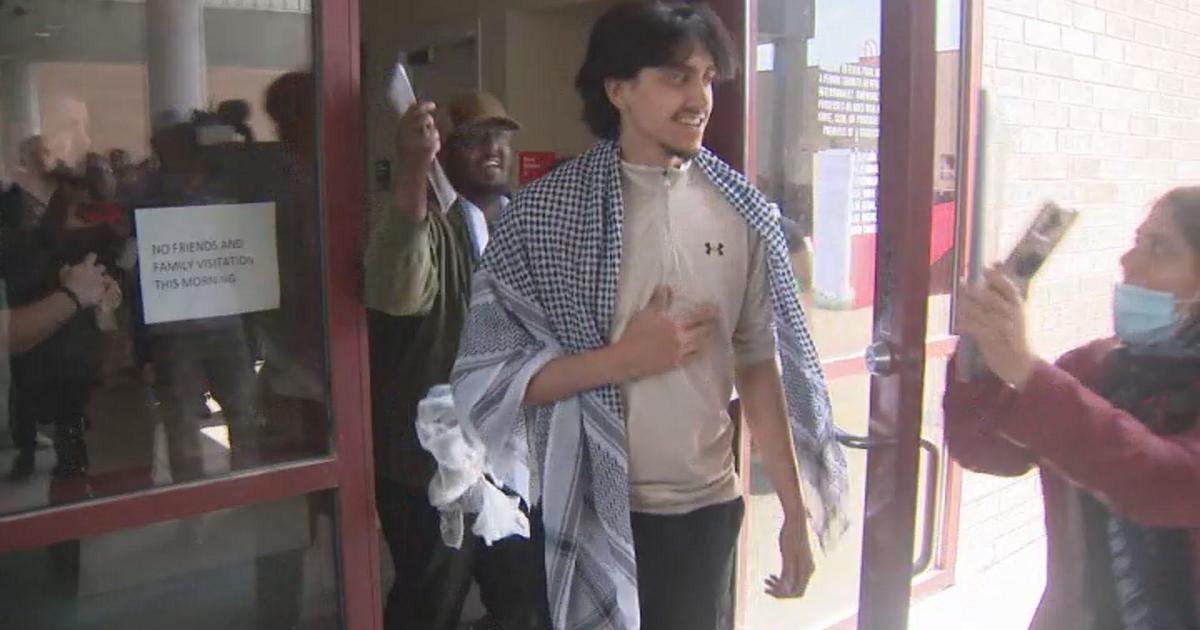Law Professor: Ken Paxton's Texas Election Lawsuit Against 4 States 'Very Unrealistic'
NORTH TEXAS (CBSDFW.COM) - SMU Constitutional Law Professor Dale Carpenter said Tuesday, Dec 8 that the lawsuit filed by Texas Attorney General Ken Paxton is "very unrealistic."
"Ken Paxton is asking that Republican state legislatures in four states be allowed to displace the will of the voters in those States and choose their own slate of electors, presumably to hand the election to Donald Trump in January," said Carpenter. "The Supreme Court is not going to allow that to happen."
Earlier, Paxton said states made unconstitutional changes to their laws before the 2020 election and that skewed the election results for the 2020 General Election.
"The states violated statutes enacted by their duly elected legislatures, thereby violating the Constitution," said Paxton. "By ignoring both state and federal law, these states have not only tainted the integrity of their own citizens' vote, but of Texas and every other state that held lawful elections," Paxton continued.
But Carpenter said he thinks these issues have already been addressed by the states and therefor the State of Texas would not have anything unique to bring to the table.
"The state Attorney General Ken Paxton is essentially trying to litigate -- or relitigate -- claims that are being heard in various other lawsuits and that have already been heard to some extent, and can be heard in the Supreme Court. So, the Supreme Court doesn't need to hear this from the State of Texas," said Carpenter. "The second thing I would say is that state election laws quite commonly grant full discretionary authority to state election commissions to make changes as needed."
Carpenter said he thinks the coronavirus pandemic would certainly allow states to adjust their elections to make voting easier.
While disputes between several states can be taken directly to the United States Supreme Court, Carpenter said it would be wrong to think that factual issues regarding specific election rules or accusations of fraud would be adjudicated there. "The Supreme Court is not going to decide in the next few days -- apparently -- the intensely factual questions about whether there was fraud, whether the voting the signatures matched and on the ballot and in the voting application... and all the rest," said Carpenter.
Read the entire interview below:
CBS 11 Political Reporter, Jack Fink
So why do you think that the Supreme Court is really not going to hear this case?
SMU Constitutional Law Professor, Dale Carpenter
Well, there are a number of problems with complaint that was filed by the State Attorney General. Today. One of them is that Texas may not even have 'standing' to make this challenge. It isn't the right party to challenge results in other States and their Presidential Election contests. That's a real problem for Texas.
It's also the case that Texas waited a very long time to file this complaint. The election procedures that Texas is concerned about occurred over the last summer in the last few weeks before the election; the voting began; the counting began on November 3rd; election results were certified in November and early December and it's only now -- the day before -- these states can choose their electors safely that the state has filed this challenge. That is going to be considered untimely in the Supreme Court, Texas should not have waited so long.
CBS 11 Political Reporter, Jack Fink
Well, when should it have filed if they were going to even do this?
SMU Constitutional Law Professor, Dale Carpenter
Well, it possibly could have filed when the election results were coming in and the counts were coming in and there were complaints about the way the ballots were going to be counted. Or at the very latest when the individual states were certifying those election results and that was that was weeks ago in some cases.
CBS 11 Political Reporter, Jack Fink
So, let me ask you about what you said as far as weather Texas has standing. The fact that this involves the Electoral College and that this is a national election. Do Texas and all these other states have say in the sense that what happens in one state impacts all states?
SMU Constitutional Law Professor, Dale Carpenter
To show that it has standing Texas has to show that it has a particular steak in the outcome of the internal election of another state. It has to show that it has a kind of particularized standing that it has been hurt in an especially great way. And it really can't show that, any more than 320 million other Americans can show that, or than the other 30,000,000 Texans could show that.
It's not the kind of standing that you would see and say a lawsuit where someone was injured in a car accident. Where a bystander was said that they were hurt because they saw the accident, but it's really the people who were injured in the accident that we're actually hurting those should be the ones bringing the complaints.
CBS 11 Political Reporter, Jack Fink
In the actual body of the lawsuit the Texas Attorney General mentions the Electors Clause, Equal Protection and Due Process. For the Electors Clause they say [that] changes made by these battleground states -- before the election obviously -- violated the constitution because it wasn't the state legislatures that made the changes that was it was the states that made the changes, if I read it properly. Is that a legitimate constitutional issue?
SMU Constitutional Law Professor, Dale Carpenter
I would say it's not legitimate under this particular lawsuit and let me explain why. The state Attorney General Ken Paxton is essentially trying to litigate or relitigate claims that are being heard in various other lawsuits and that have already been heard to some extent, and can be heard in the Supreme Court. So, the Supreme Court doesn't need to hear this from the State of Texas.
The second thing I would say is that state election laws quite commonly grants full discretionary authority to state election commissions to make changes as needed. Certainly, under the kind of circumstances we've seen in the last few months to allow for more voting and more voting that's more amenable to the citizens of the state under these conditions. So, it's not the kind of thing that's just being changed willy-nilly by a state governor or by state election officials. So, there's a real question there.
And then third, there's a legal question about what can be allowed under a state's own election system. Under the constitution, those are open questions but they don't need to be raised by Texas. Texas doesn't bring anything special to the table.
CBS 11 Political Reporter, Jack Fink
So, in other words that goes back to the standing question?
SMU Constitutional Law Professor, Dale Carpenter
Goes back to standing and it also goes back to the fact that these issues are in -- one way or another -- already being litigated in lower courts and in the Supreme Court.
CBS 11 Political Reporter, Jack Fink
I know for example, in Pennsylvania, where you and I discussed constitutional issues right after the election there was a Republican member of Congress who's filed suit and the US Supreme Court is going to have to decide whether it takes that case on. That is a case where they would have standing obviously because. It's somebody in that state and somebody directly impacted by it, right?
SMU Constitutional Law Professor, Dale Carpenter
Yes, I think someone like that could probably bring a lawsuit in the Supreme Court and be heard in the Supreme Court. But the Supreme Court probably is not going to want to get involved in an intensely -- I would say -- difficult constitutional question unless it's going to make some difference in the outcome. And even in that case, there's no indication that a difference would be made in the outcome in Pennsylvania, where the margin is something like 80,000 votes at this point, and the results have been certified.
So even there, I doubt the Supreme Court is going to get involved. But it's possible they could get involved and hear that purely a legal dispute. It wouldn't change the outcome of the election in any way or even the election in Pennsylvania. But to hear the Texas complaint, it's just basically the attorney general is kind of grandstanding.
CBS 11 Political Reporter, Jack Fink
And just on that thought that you had before with regards to the Supreme Court making a decision whether it's going to accept the case or not based -- in part -- on that it doesn't change the outcome of the election. At some point, though because of all these legal questions over whether the US Constitution was violated or not (and I hear your argument that it really depends on the states constitution whether they grant other people outside the Legislature, the authority to make changes as they see fit) doesn't the Supreme Court need to step in to kind of establish firm rules so that people all across the country know what they are, instead of having all these questions being raised all the time in future elections?
SMU Constitutional Law Professor, Dale Carpenter
Yes, there's tension on the court between reaching out and deciding issues before they have to be decided and therefore, giving clarity to everyone... and on the other hand, reaching out in deciding issues that they don't need to decide and using up some of their authority to be able to make those decisions. So, there's a balance there. And the Supreme Court may decide that it is going to try to resolve some of the legal disputes in this election context, so that we can have more guidance in the future, although I still think that's probably not going to happen. Again, it's not going to happen in a way that's going to change the outcome of the election.
CBS 11 Political Reporter, Jack Fink
Several more questions. I just wanted to ask your thoughts on the equal protection and due process. Claims put forth in this lawsuit again. Does this just go back to standing and the lower courts in other states considering this?
SMU Constitutional Law Professor, Dale Carpenter
Yeah, so the standing issue is what we call a threshold legal issue before you even hear the merits of the claims. Does the party that's asserting the claim have the ability to bring those particular claims?
The merits claims are the claims that you mentioned earlier like the constitutional claims: were the election procedures proper under the state legislatures rules; could they be constitutionally considered; the equal protection issue; and the due process issue.
The equal protection issue is, in theory, a kind of issue you could bring in the Supreme Court and indeed it was a concern in Bush versus Gore, where the problem was that the Florida recount was proceeding under vote counting procedures that just didn't give people equal voting weight. The Florida Supreme Court was allowing votes to be counted differently in different parts of the state and that didn't seem fair. But the Supreme Court limited that decision to the one single circumstance of Florida and did not extend it beyond that to consider other election equal protection challenges in the context of an election. So, there's no reason to believe that that's going to be any precedent in the future.
In theory, it could be but we don't have any evidence yet that that's the kind of violation we're seeing in the States and so again part of the problem with the state attorney general 's argument is not just that there might be a veneer of a legal claim here, but it also involves intensely factual disputes that have been resolved in other litigation or that are being resolved in other litigation or that have been debunked and discredited by federal and by state authorities. So there's no real equal protection or fundamental due process new process right involved here that we know of.
And again, as you and I have discussed before the Supreme Court is not going to decide in the next few days apparently the intensely factual questions about whether there was fraud, whether the voting the signatures matched and on the ballot and in the voting application and all the rest. Those are just not issues the Supreme Court is going to decide.
CBS 11 Political Reporter, Jack Fink
You always have said to me that it's really just legal questions that go back towards the constitution.
SMU Constitutional Law Professor, Dale Carpenter
That's right because the Supreme Court doesn't have the competence and it doesn't have the capacity to decide these incredibly intensely complex and disputed factual questions. It's not a glorified trial court sitting in Washington DC in a marvelous setting.
CBS 11 Political Reporter, Jack Fink
Pardon my ignorance, when you talk about the safe harbor -- I know on Monday the electors in Texas will gather at the state capital -- so is that outside the safe harbor?
SMU Constitutional Law Professor, Dale Carpenter
So, the Safe Harbor is a federal statute, a deadline set by federal statute that allows states to choose their slate of electors by a certain date that date happens to be today.
The state Attorney General Ken Paxton filed his lawsuit yesterday basically saying that in those four states, there could be no certification unless the state Legislature got involved.
The Safe Harbor allows the states to be able to choose their electors by today and do so without having any challenge to that slate of electors in the Electoral College meeting on Monday, or in the vote, counting in Congress in early January.
The problem with the Safe Harbor is that if a state does not choose its electors by today then there could be a potential challenge to the validity of those electors in January when it comes time to actually choose the president. So what the state attorney general is asking for in this case... what Ken Paxton is asking for is extraordinary. He is asking basically for the Supreme Court to extend the Electoral College Deadline, which it has never done in the history of this country. Even did not do so in the election of 2000. That was decided by 537 votes in one state not by hundreds of thousands of votes at across multiple states. He's asking for that. And then he's asking for something even more extraordinary. Ken Paxton is asking that Republican state legislatures in four states be allowed to displace the will of the voters in those States and choose their own slate of electors, presumably to hand the election to Donald Trump in January. the Supreme Court is not going to allow that to happen.
CBS 11 Political Reporter, Jack Fink
In either case.
SMU Constitutional Law Professor, Dale Carpenter
In either case.
CBS 11 Political Reporter, Jack Fink
So just very unrealistic?
SMU Constitutional Law Professor, Dale Carpenter
Very unrealistic.
CBS 11 Political Reporter, Jack Fink
A nonstarter?
SMU Constitutional Law Professor, Dale Carpenter
That's right.
CBS 11 Political Reporter, Jack Fink
And I wanted to ask you just one other question and that was, I've read comments on social media since this lawsuit was filed or since it was announced this morning and some people are saying this is -- as you said it's political -- but what some people have said is that this is a case in which the attorney general who is reportedly under investigation by the FBI is just seeking a presidential pardon.
What can the president if he chooses to pardon Ken Paxton -- he hasn't been charged with any federal crime yet -- but his presidential pardon only is for federal crimes -- not state crimes -- which he is still facing three indictments in the State of Texas.
SMU Constitutional Law Professor, Dale Carpenter
The president could conceivably... Hypothetically... Pardon Ken Paxton for federal crimes even if those crimes have not yet been charged. And so even if he's not yet been indicted much less held found to be guilty, the president cannot pardon either himself or Ken Paxton from state crimes. Those the president has no authority over.
CBS 11 Political Reporter, Jack Fink
Right so in this case certainly if he decides to do that he could do that only as it relates to any federal issue that Attorney General Ken Paxton may be facing.
SMU Constitutional Law Professor, Dale Carpenter
That's right.
MORE FROM CBSDFW



